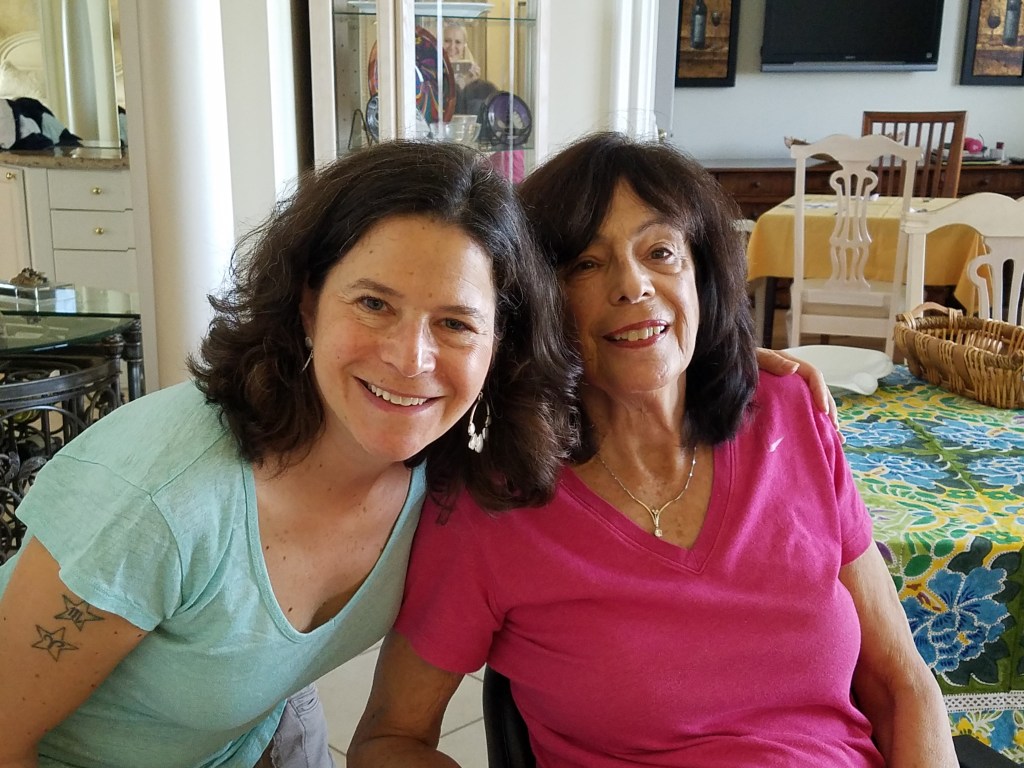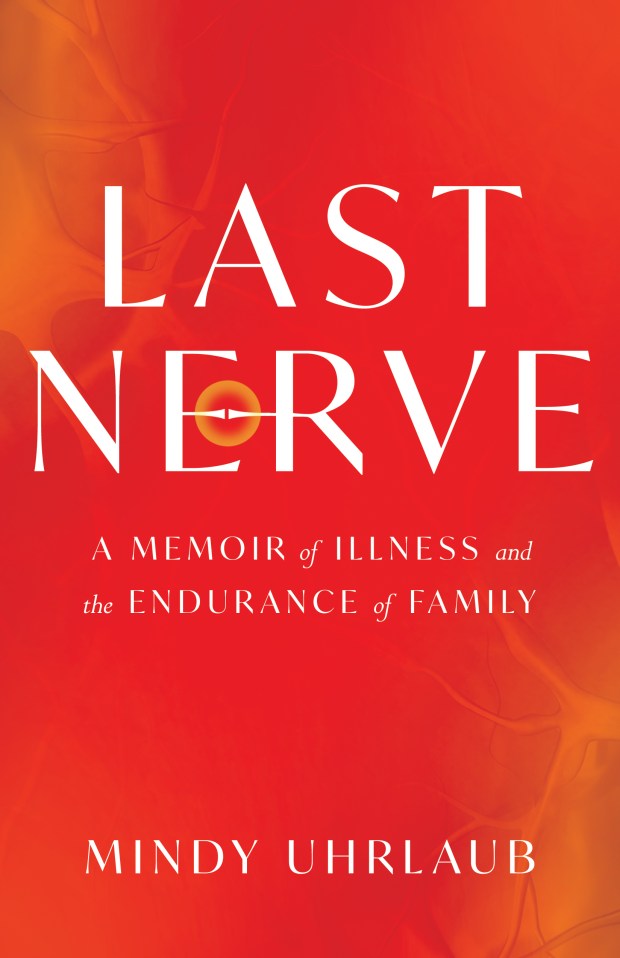Show Caption
1 of 2
San Anselmo resident Mindy Uhrlaub, left, pictured with her mom. (Courtesy of Mindy Uhrlaub)
When Mindy Uhrlaub got tested to see if she was a carrier of the fatal mutation that causes the amyotrophic lateral sclerosis (ALS) her mom had, her neurogeneticist at Stanford told her that if she was negative, they’d leave her a voicemail.
While on a trip with her husband, Kirk, to visit their son, Ethan, at a wilderness program in Utah they’d sent him to in 2018 after he’d become angry, disrespectful and volatile at home, the San Anselmo resident gave a sigh of relief when she saw she had a voicemail from the medical provider.
But the message said, “Mindy, I have your genetic test results. I need you to come in.”
She would come to learn that she had the C9orf72 gene, which meant her chances of getting ALS or frontotemporal dementia (FTD) or both at some time in her life were incredibly high. Only a small percentage of people with the gene remain asymptomatic, and she had a 50-50 chance of passing it along to her two children, Ethan and Alex.
She felt it became a “monster” under her bed with “red, glowing eyes and sharp claws.”
But, for a while, it’s something she only told her husband, brother and her parents, as she navigated caregiving for her mother with ALS, her husband’s battle with lymphatic cancer and undergoing chemotherapy and supporting her two children who navigated this unknown time.
“When I look back on those years, I almost feel like that was a different person. This kind of trauma can transform you for the better,” she said.
It’s a journey she writes about in “Last Nerve,” her memoir that she wrote in real-time a few years ago. Publishers Weekly describes it as a “heartwarming memoir of motherhood, ALS and never backing down.”
“My dad’s a philanthropist, and my mom was a fighter. I draw inspiration from both of my kids, really. Both of them had to struggle. And my husband, too. We did it together. We always drew on the love that we had as a family to get us through all of that,” she said. (Her husband has since recovered. Her mom died in January 2020.)
Now in her mid-50s, around the average time when the onset begins, she continues to be an advocate for genetic carriers like herself and for research toward finding a cure for ALS.
She is a founding member of End the Legacy, a patient-led organization dedicated to the needs and interests of the genetic ALS and FTD community; participates in longitudinal studies surrounding ALS; testified before the National Institutes for Health and the Food and Drug Administration and demanded early access to life-saving drugs for pre-symptomatic carriers of genetic ALS; was nominated to be on a National Academies of Sciences, Engineering, and Medicine committee and published a report in 2024 on how to make ALS a livable disease.
“Amyotrophic lateral sclerosis is relentless, but so am I,” she writes.
For her, this work feels like a calling.
“ALS takes everything from you. Becoming involved in advocacy and research gives you agency over a disease that’s threatening to kill you. I feel like I was put on this Earth to do this work,” she said.
This year, she received the 2025 Harvey and Bonny Gaffen Advancements in ALS Award from the Les Turner ALS Foundation, acknowledging her extensive activism work.
“I don’t think that I could have gotten that award without End the Legacy,” said Uhrlaub, who was able to connect with people who knew how she felt. “It has supported me as a genetic carrier and as an activist. When you find someone who understands you, it just changes your whole outlook. It made me want to help other people. It made me want to mentor other people because I know how it feels.”
Speaking out
Activism and humanitarianism are often at the heart of what she does.
After reading “King Leopold’s Ghost” by Adam Hochschild, which focuses on the brutal exploitation and atrocities committed in Congo under the rule of King Leopold II of Belgium, she began looking more into the history of the area.
“What started with Leopold still continues in the DRC. To this day, rape, slavery and corruption still exist there,” writes Uhrlaub, who first went to the Democratic Republic of the Congo in 2011.
She’d end up going to the area twice with Human Rights Watch and Eve Ensler’s V-Day, a global activist movement to end violence against women and girls, where she took testimony of sexual assault survivors and child soldiers. Her debut novel, “Unnatural Resources,” which was published in 2020, tells the story of a young Congolese girl who becomes a symbol of hope.
“Mindy Uhrlaub’s powerful and inspiring memoir is a work of courageous transformation. She deepens her soul by turning her pain into power and ardently committing herself to the struggle against ALS for the legacy of her mother, for herself, and for all those suffering from the disease,” V, formerly Eve Ensler, said.
As time went on, Uhrlaub realized that her writing was another piece of her activism work.
“I knew that I could do something with this knowledge. I knew I could participate in research. It slowly dawned on me that I was already an activist just by getting the genetic test. Writing the book was just another piece of activism that I just had in my toolbox,” said Uhrlaub, who provides resources for people toward the end of the book.
Her youngest son, Alex, is enrolled in a clinical longitudinal observation — something he started at 17 years old.
“It was a proud moment for me when we went down to UCSF and he did all the same tests I did,” said Uhrlaub, who says that “finding the cure for ALS will be the ultimate sacrifice and gift to my family.”
These days, she doesn’t take anything for granted — especially her health. But she hopes that the book resonates with everyone to not ignore their own “monster under the bed” but rather to confront it head-on.
“I have to love the ALS part of me because that’s what makes me a better activist. It makes me a better parent. It makes me a better friend. It makes me a better spouse. The real bottom line of the book is that when the chips are down, it’s not enough to just crawl under the covers and hide. You have to reach out and live your life larger. And to me, part of that means loving the world harder,” she said.
Originally Published: June 25, 2025 at 6:06 PM PDT

